Lova Rakotomalala of the Rising Voices grantee FOKO writes that Internet is becoming a threat to the authoritarian regime in Madagascar:
It is interesting that indeed, authoritarian regimes have become increasingly suspicious of online networks. Even in countries where internet penetration is minimal like Madagascar (1% of the population had access to internet in 2008), the current government born from a coup in March 2009 still went through the trouble of shutting down one of the largest online platform of the country, topmada.com, with physical threats to the owner of the website. The most agreed upon theory is that in developing countries largely dependent on international trade and aid, such documented examples of offenses against human rights often result in economic sanction that in turn could lead to the downfall of the regime, if it is already standing on fragile political ground.
The regime fears a growing number of internet activists and the citizen journalists of FOKO are at the front stage. They are recording their daily lives and opinions on current affairs with their blog posts or Twitter messages.
Lova Rakotomalala also evaluates the power of storytelling of FOKO, being a digital outreach project. Here are some excerpts:
Most of the important achievements of the Foko project can be traced directly to their individual members first and second to Joan and Stephane who have carried the lion share of the workload.
Evidently, the context of the Foko project changed drastically because of the ongoing political turmoil. What started has a project to illustrate the day-to-day lives of Malagasy people and a platform to exchange ideas, became an critical outlet to receive news pertaining to the crisis.
Even though I do not have the exact numbers, it is pretty clear that the Malagasy crisis provoke a surge in the creation of political blogs. There was also the opposite effect, the ones who stopped blogging in view of more urgent matters to attend to or because it became dangerous to speak out. [..] Now that the media in the rest of the world has essentially forgotten about the persisting crisis in Madagascar, it will also be intriguing to see how the dynamic of the blogoshpere will evolve in a more introspective context.
At the height of the crisis, bloggers like everyone else, were concerned with transmitting what they saw, heard or felt as quickly as possible. A photo was worth a thousand words, literally. Then the dust settled. The frenzy made ways to a less urgent but still probably more sobering, grinding crisis, one that probably will have more lasting effects than the turmoil at the height of the violence. Still bloggers in general and from Foko in particular have remained. A few quit but new ones also arrived.
He shares some stories of Malagasy people told by Malagasy blogger and states that they are clearly re-told by the bloggers who live near or witness them. This is the power of story telling which can make an impact in the society.
Joan Razafimaharo started a meme titled “Madagascar … 50 years later” in which several generations of Malagasy netizens shares their opinions on Madagascar through hopes of the past, today's reality and the wishes for tomorrow. Here is a list of entries she compiled in her blog “Purple Corner”.
Now let us look at some of the stories published by the FOKO bloggers.
Tahina is concerned about the drying up of Ikopa river because of the drought and less rain.
Patrick writes about an effort of the Vintsy Fandrana Club of the University of Tamatave. They launched a campaign to control mice/rats in the campus, which were bothering students at night.
Tontonkely, a new blogger from Antsirabe Vakinankaratra region informs about the unwanted children of a tribe in Antambahoaka:
The people of the tribe in Madagascar Antambahoaka refuse to raise their children if they are twins. For them, raising twins or binoculars is strictly taboo.
This phenomenon has already existed since the sixteenth century and it continues until now.
This results in the killing of some children or abandoning them only to be saved by some good people. The blogger says that the government is not doing anything about it.
Luc Andriambahoaka introduces to us an innovative project of promoting cycle Rickshaws and how they are improving the lives of people in Antsirabe:
Due to a situation of chronic poverty in rural areas around Antsirabe, the Region has witnessed a very strong rural exodus. The workers migrate to the city in hopes of finding employment and better income.
The city itself is full of young people whose future is clouded by the low employment opportunity, a lack of employability and living conditions very difficult.
The work of rickshaw pullers becomes an “easy” way to survive and support his family.
Imahaka, a student of the ESSVA school in Antsirabe, has the curiosity to discover the nature and writes about Voatandroka, a rare beetle like insect.
Ariniaina highlights those people who live by picking trash.
Stéphane Ramananarivo continues to conduct citizen media workshops to newer communities of Madagsacar.
Joan Razafimaharo writes in the project blog:
Last Friday, another workshop took place at APC this time to learn about Social Media which is little known by journalists. Two young bloggers helped Stéphane introduce social networks such as Twitter and Facebook but also WordPress. This was the third workshop of a serie which started back in April 2009. [..]
He is currently training SAVA and DIANA regions bloggers who showed interest in Foko and its successful Blog Club outreach.
Stéphane posts some photos of the microblogging workshop in his blog.
Get the updates from the FOKO bloggers from here. Here is a list of more new blogs, which were opened by the recent blogging workshop in Fianaransoa.

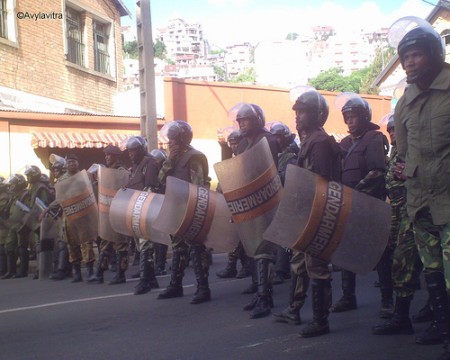
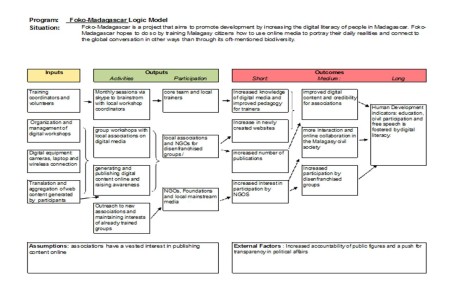
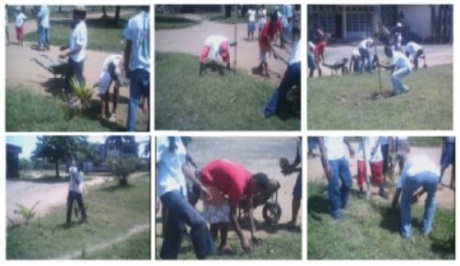
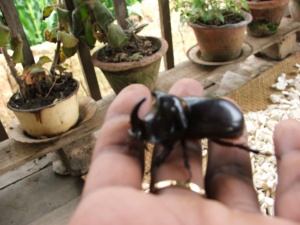
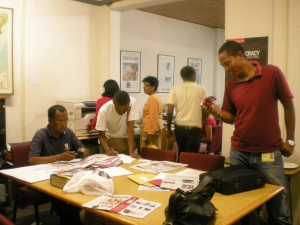




3 comments
Thanks for your update Rezwan